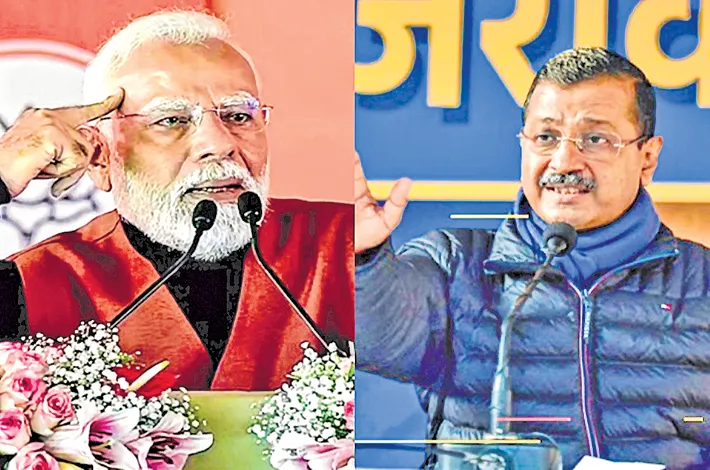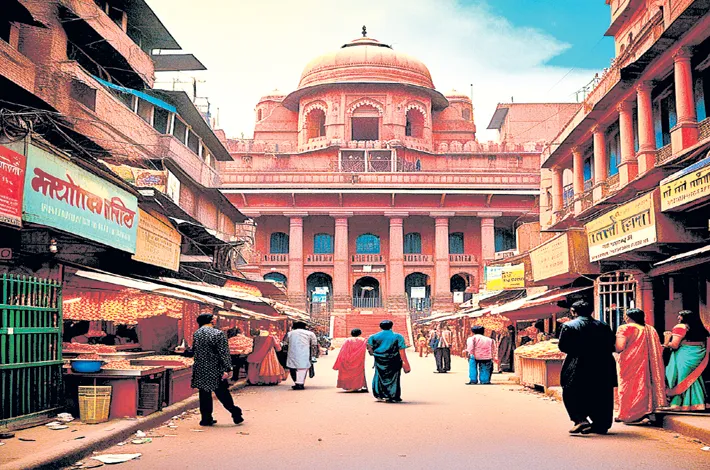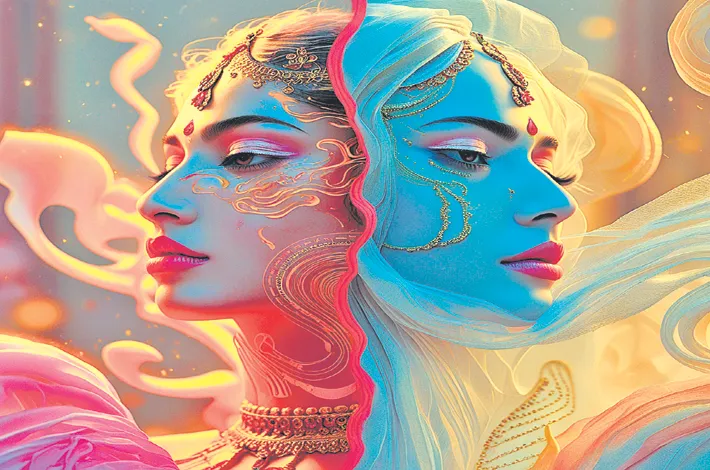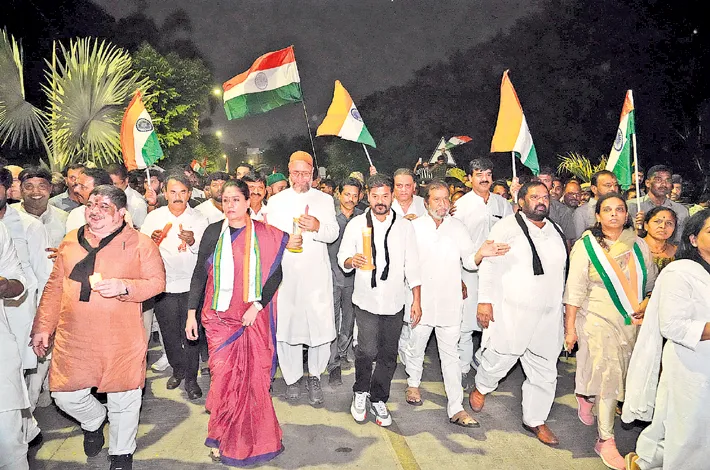From hero to villain: AAP faces its toughest test of public perception
08-01-2025 12:00:00 AM

Delhi's political contours are changing as AAP battles scandals, BJP eyes comeback and Congress seeks revival
The February 5 Delhi Assembly elections will witness a fierce triangular contest and serve as a litmus test for the ruling Aam Aadmi Party (AAP) and its supremo, Arvind Kejriwal. The political centre stage will look dramatically different from five years ago when AAP secured another sweeping victory.
The upcoming polls have left the door ajar for both the BJP and AAP's erstwhile ally, Congress. Much has changed in the Indian capital since AAP swept to power for the second consecutive term with a brutal majority in 2020. The political dynamics have shifted drastically, with AAP facing unprecedented challenges to its narrative of good governance.
For the first time in over a decade, Kejriwal and his senior associates face the electorate without their customary holier-than-thou attitude. While AAP's opponents brandish a lengthy list of the government's misdeeds, the 2021 liquor scam looms particularly large, threatening to undermine the party's carefully crafted image of clean governance and transparency.
The scandal engulfed AAP's entire top brass, including Kejriwal. They were booked for allegedly tweaking Delhi's excise rules to benefit certain private players in exchange for substantial bribes.
Besides Kejriwal, who was then serving as Delhi chief minister, other prominent arrestees included Deputy Chief Minister Manish Sisodia, vocal Rajya Sabha MP Sanjay Singh, and Minister Satyendar Kumar Jain. The Sword of Damocles still hangs over them as they remain out on bail, not yet acquitted by the court, creating uncertainty about their political future.
Much like the UPA 2.0 government under Prime Minister Manmohan Singh found itself mired in corruption charges that proved its undoing, AAP 2.0 faces similar challenges that could potentially erode its support base. While AAP's first term was relatively scandal-free, or at least appeared so to the public eye, they have since lost their carefully cultivated image as an honest party.
The irony is not lost that AAP emerged from social activist Anna Hazare's agitation against alleged widespread corruption in the UPA 2.0 government, only to find itself facing similar accusations.
Other corruption allegations against AAP have multiplied, including the Delhi Jal Board scam, Mohalla Clinic scam, Medicine scam, and Classroom scam. Critics allege these ill-gotten funds fuelled Kejriwal's goal to establish AAP as a national party and position himself as a future prime ministerial contender. The first objective was achieved last year, and the Delhi outcome could decide Kejriwal’s national ambitions.
The BJP, which won three and eight seats in the 2015 and 2020 polls respectively compared to Congress' zero, sees an opportunity to reclaim power due to mounting corruption charges against AAP and potential voter fatigue. However, the path is not straightforward.
AAP has consistently won Delhi even during the peak of the Modi wave, securing 67 and 62 seats in the last two elections to the 70-member assembly. Meanwhile, the BJP dominated all seven Lok Sabha seats during the same period.
This peculiar voting pattern suggests Delhi's electorate prefers Modi as PM and Kejriwal as CM, a unique political phenomenon that has persisted through multiple election cycles. Understanding this dynamic, Kejriwal continues to project himself as the next Delhi chief minister while BJP campaigns without naming its chief ministerial face, effectively making it a Modi vs Kejriwal contest.
However, Kejriwal's effectiveness remains constrained by strict bail conditions barring him from working from the Chief Minister's Office or signing files – restrictions imposed after his six-month imprisonment in the liquor scam.
History provides an interesting context. BJP's only Delhi assembly victory came over 25 years ago when they won 49 seats in 1993. Since then, Congress ruled for 15 years under Sheila Dikshit until AAP's emergence before the 2013 elections.
In that contest, BJP fell four seats short of a majority, leading to AAP forming the government with Congress support. Unless BJP convinces Delhi voters to pronounce Kejriwal the culprit before the judiciary delivers its verdict, there is no guarantee their fortunes will change in this election.
Meanwhile, the Congress party can only hope to finally open its account after its poor track record of winning 8, 0, and 0 seats in the last three assembly elections.
The party's declining fortunes in the capital, from winning 8 seats in 2013 to drawing complete blanks in both 2015 and 2020, reflect the dramatic transformation of Delhi's political stage from a traditional Congress-BJP battleground to the current AAP-dominated scenario.








